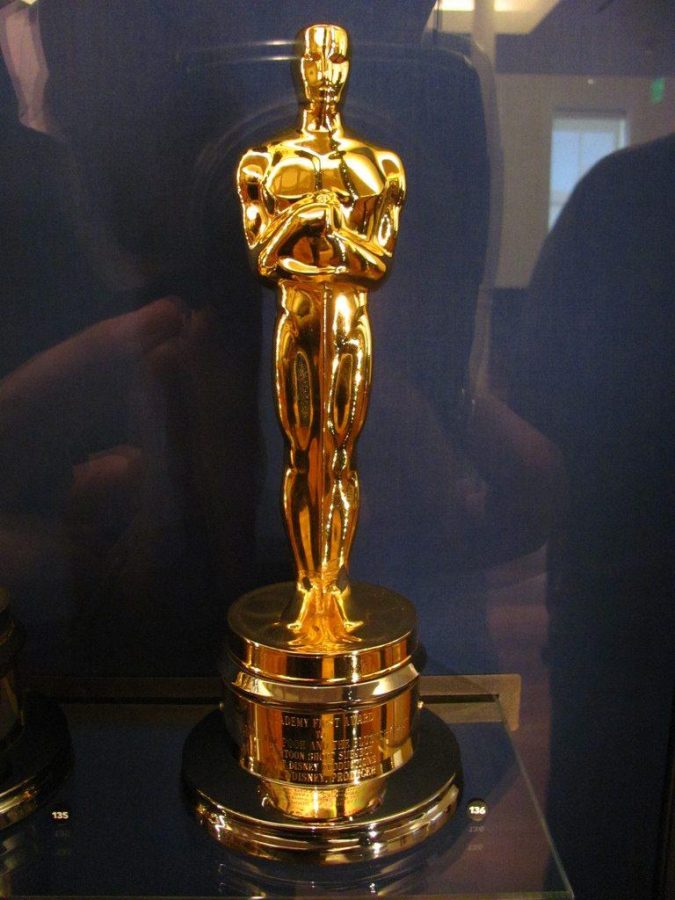Warning: This review contains mild spoilers for “Darkest Hour.”
Most awards seasons a film comes around that seems to be so catered to Oscar voters’ tastes that it is almost comical. These films do not necessarily win Best Picture, but their presence feels inevitable, even if they don’t catch fire with critics or at the box office. They are often historical biopics that celebrate charismatic leaders — they are usually traditional in both style and content and tend to appeal to an older white male audience. Even if these films are entertaining or well made, they are often held up as an example of the Academy’s regressiveness, but old traditions die hard, and this year no nominee is as old and traditional as “Darkest Hour.”
In May 1940, the United Kingdom is facing immense internal and external turmoil. As Nazi Germany quickly overtakes Europe, the English government is divided on an appropriate response. After Prime Minster Neville Chamberlain (Ronald Pickup) is forced to resign, Winston Churchill (Gary Oldman) is reluctantly chosen to take the seat. Churchill is opinionated, brilliant and idiosyncratic, but he is mistrusted by most of Parliament, including members of his own party. Though many leaders argue that war should be avoided at all costs, Churchill is steadfastly against compromising with Hitler. By the film’s end, Churchill orders a successful evacuation of Dunkirk and has effectively convinced the public and Parliament to fight back against the Nazi invasion.
“Darkest Hour” is certainly a vehicle for Oldman and his work here is easily likable, ruggedly charming and genuinely funny. Oldman’s portrayal of Churchill is studiously accurate — evoking the late Prime Minister physically and vocally. Despite his long, celebrated career in film, Oldman has never won an Academy Award, but this will likely change on March 4.
World War II has always been a favorite subject for filmmakers and the narrative of “Darkest Hour” is interesting as far as historical fiction goes. The screenplay by Andrew McCarten observes that Britain’s military engagement was neither obvious nor inevitable — and it’s fun to watch Churchill in action: eating sausage, drinking whiskey and taking names. On a more fundamental level, “Darkest Hour” does not have a clear idea of what it wants to say or why it exists in the first place. Of course, the events the film portrays are crucial moments in world history, and surely there are many interesting opportunities for films in this specific story. On every non-narrative level, “Darkest Hour” is curiously devoid of complexity. It’s not that the presentation of this film is poorly made, it’s that the film ignores so many interesting possibilities for moral, psychological, historical or personal exploration. This premise could explore questions about the moral calculus of war, the nature of great leadership or how trying times affect both the powerful and powerless. Instead the film’s approach is “just-the-facts-ma’am,” a handsome recreation of a history textbook. The result is a work that feels both intellectually and emotionally neutered.
By the end of the film, audiences still have little sense of Churchill as a three-dimensional character. His relationships with his wife and secretary are broad and underexplored. We don’t understand why he was adamant about a hard-line stance against Germany — since he was proven right by history, the film does not feel it is worth examining. Even Oldman’s performance is paradoxically impenetrable: it manages to be both detail-oriented and shallow.
The film is most illuminating when it does not reach for wide generalizations. In one entirely fictional scene, Churchill discusses the possibility of war with a group of public transit passengers. The film wants it to be an emotional climax, but the result is schmaltzy and still avoids any honest probing of Churchill’s motivations. Seemingly throwaway moments, like Churchill laughing with his secretary about a misplaced hand gesture, are far more successful. In small one-on-one conversations, audiences get a glimpse of the authenticity that may have been Churchill’s secret weapon. Moments like these provide glimpses of a very different version of “Darkest Hour” — one that stops being polite and starts getting real.


